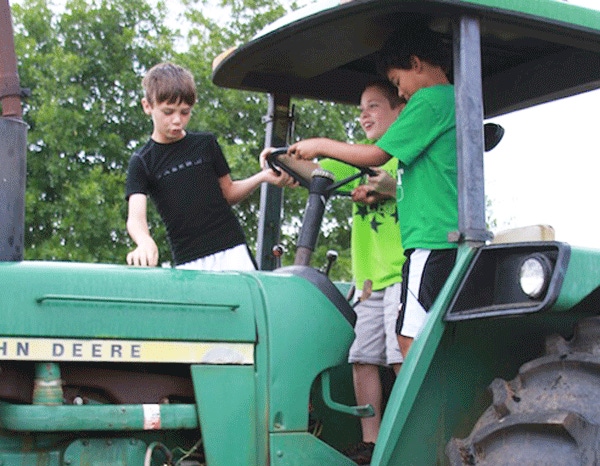September 12, 2012

Kentucky has 87,500 farms, second only to Tennessee in the eastern United States.
Each farmer is responsible for feeding 152 people but the sacrifice to produce this bountiful food supply is immense.
On the surface, agriculture and nurses don’t seem to have much in common, but as a nurse I have seen the “blood, sweat, and tears” of farming.
I have cared for farmers with amputated arms and legs, usually results of entanglement in farm machinery. One out of every 10 farmers has an amputation, most from working on machinery while it is in operation.
Simply shutting machinery down and taking the key before performing inspections or repair could prevent these life changing events.
Farmers have one of the highest suicide rates of all occupations and the number of suicides has already increased this year due to the drought and the stress it has produced. Farmers or family members experiencing stress should seek help.
Farming is a family way of life; one might call it a cradle to grave industry. Children learn farming early in life by observation and working alongside their families. They learn about life and death, about faith and endurance.
Each year more than 100 children lose their lives through exposures to farm work. When a child dies, some of the life of the family dies with that child. Free resources to keep children safer on the farm are available from the National Children’s Center for Rural and Agricultural Safety at http://www.marshfieldclinic.org/NCCRAHS/.
Older farmers rarely retire and consequently suffer the highest fatality rates of any industry. Adult farmers have accelerated hearing loss due to years of noise exposure, arthritis made worse by working in cold weather and in awkward positions, and cataracts from sun exposure.
They claim “it just comes with the job” but in reality they may not know the best practices to slow these debilitating processes.
AgrAbility is a program located in the University of Kentucky’s College of Agriculture whose purpose is to assist farmers with disabilities. Call 1-800-333-2814 toll-free for more information.
Men aren’t the only farmers. Women now operate 30 percent of all farms. This frequently means running a household, holding an off-farm job, and performing farm work.
Multi-tasking is all in a day’s work. As a matter of fact, about half of all farms in the United States are operated by persons holding at least one off-farm job. So, you may rub elbows every day with farmers and not even know it.
Most bi-vocational farmers state their farm job actually relaxes them from the pressures of their primary employment, a sort of therapy.
You May Also Like




